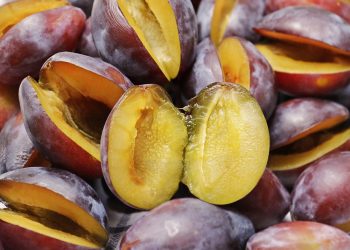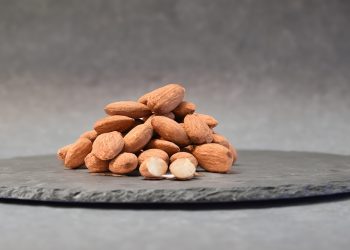Are you ready to discover the protein sources that supercharge muscle growth? If you’re serious about building muscle, you know that protein is your best friend. It’s not just about hitting the gym; it’s about what you fuel your body with afterward. The right protein can help you recover faster, grow stronger, and feel more energized. Let’s dive into the seven powerhouse protein sources that will elevate your muscle game.
Contents
- What Is Protein and Why Is It Important?
- 1. Chicken Breast: The Lean Champion
- 2. Greek Yogurt: Creamy and Powerful
- 3. Eggs: Nature’s Perfect Protein
- 4. Salmon: The Omega-3 Superstar
- 5. Lentils: The Plant-Based Powerhouse
- 6. Cottage Cheese: The Underrated Gem
- 7. Quinoa: The Complete Protein
- Crafting Your Protein-Rich Meal Plan
- Bottom Line
- FAQs
What Is Protein and Why Is It Important?
Protein is a fundamental building block for your body. Composed of amino acids, it plays a crucial role in repairing and building tissues, including muscles. If you’re working hard to lift weights or engage in intense workouts, your body needs adequate protein to recover and grow. Without it, you risk losing muscle instead of gaining it.
Understanding how much protein you need is also vital. For most active individuals, the recommended daily intake ranges from 1.2 to 2.2 grams of protein per kilogram of body weight. But remember, not all proteins are created equal. Choosing high-quality sources can make all the difference.
1. Chicken Breast: The Lean Champion
Let’s talk about chicken breast—arguably the most popular protein source among fitness enthusiasts. With about 31 grams of protein per 100 grams, it’s low in fat and packed with essential nutrients.
Why Chicken Breast?
- Versatile: You can grill, bake, or stir-fry it in endless ways.
- Quick to Cook: Perfect for busy schedules.
- Nutrient-Dense: Rich in B vitamins and minerals.
If you’re looking to bulk up without adding excess fat, chicken breast is your go-to option.
2. Greek Yogurt: Creamy and Powerful
Have you ever tried Greek yogurt? It’s not just a delicious snack; it’s a protein powerhouse. One cup can deliver around 20 grams of protein, plus probiotics for gut health.
Benefits of Greek Yogurt:
- High in Calcium: Supports bone health.
- Versatile: Enjoy it as a snack, in smoothies, or even in cooking.
- Satiating: Keeps you full longer, helping control cravings.
Swap your regular yogurt for Greek, and you’ll be on your way to stronger muscles and a happier gut.
3. Eggs: Nature’s Perfect Protein
Eggs are often dubbed nature’s perfect protein source. One large egg packs about 6 grams of high-quality protein and contains all nine essential amino acids.
Why Choose Eggs?
- Affordable: A budget-friendly protein option.
- Easy to Prepare: Boil, scramble, or poach—whatever you like!
- Rich in Nutrients: Packed with vitamins D and B12, as well as choline for brain health.
Including eggs in your breakfast can kickstart your day with a protein boost.
4. Salmon: The Omega-3 Superstar
Not all protein sources are created equal, and salmon is a prime example. Not only does it provide about 25 grams of protein per 100 grams, but it’s also loaded with omega-3 fatty acids that promote heart health.
Why Salmon?
- Anti-inflammatory: Helps reduce muscle soreness post-workout.
- Rich Flavor: A delicious and satisfying meal option.
- Brain Health: Supports cognitive function.
Make salmon a regular part of your diet, and you’ll be nourishing both your muscles and your mind.
5. Lentils: The Plant-Based Powerhouse
For those leaning towards plant-based options, lentils are an excellent choice. They offer around 18 grams of protein per cooked cup and are rich in fiber, keeping you full and satisfied.
Benefits of Lentils:
- Nutrient-Rich: High in iron and folate.
- Versatile: Use in soups, salads, or as a meat substitute.
- Budget-Friendly: An economical source of protein.
Incorporating lentils into your meals not only boosts your protein intake but also adds a hearty texture.
6. Cottage Cheese: The Underrated Gem
Cottage cheese often flies under the radar, but it’s a fantastic protein source, offering approximately 28 grams of protein per cup.
Why Cottage Cheese?
- Low in Fat: A great choice for those looking to manage weight.
- Quick Snack: Perfect for post-workout recovery.
- Rich in Calcium: Supports muscle contraction and bone health.
Mix it with fruits or nuts, and you have a delicious, protein-packed snack that satisfies.
7. Quinoa: The Complete Protein
Quinoa is not just a trendy grain; it’s a complete protein, providing all nine essential amino acids. With about 8 grams of protein per cooked cup, it’s an excellent addition to your diet.
Benefits of Quinoa:
- Gluten-Free: Safe for those with gluten sensitivities.
- High in Fiber: Keeps you feeling full and aids digestion.
- Versatile: Use it in salads, bowls, or as a side dish.
Add quinoa to your meals for a nutritious boost that complements your protein intake beautifully.
Crafting Your Protein-Rich Meal Plan
Now that you know the protein sources that supercharge muscle growth, it’s essential to think about how to integrate these into your daily meals. Here’s a sample meal plan to inspire you:
Breakfast: Scrambled eggs with spinach and a side of Greek yogurt topped with berries.
Lunch: Grilled chicken breast salad with quinoa, mixed greens, and a lemon vinaigrette.
Snack: Cottage cheese with sliced peaches.
Dinner: Baked salmon with roasted vegetables and a side of lentils.
Evening Snack: A bowl of Greek yogurt mixed with honey and walnuts.
Bottom Line
Fueling your body with the right protein sources is crucial for muscle growth and overall health. From lean meats to plant-based options, there’s a wealth of choices to support your fitness journey. Remember, the key is variety—mix and match these protein sources to keep your meals exciting and nutritious.
Now, it’s time to take action. Start incorporating these protein sources into your diet today, and watch your muscle growth soar.
FAQs
How much protein do I need daily?
Most active individuals need between 1.2 to 2.2 grams of protein per kilogram of body weight.
Can I get enough protein from plant-based sources?
Absolutely! Incorporating lentils, quinoa, and plant-based proteins can provide all the protein you need.
Is protein timing important?
Yes, timing can enhance muscle recovery. Aim to consume protein within 30 minutes post-workout.
Elevate your muscle growth journey with these seven protein sources, and remember: your body deserves the best!
Get Your FREE Natural Health Guide!
Subscribe now and receive our exclusive ebook packed with natural health tips, practical wellness advice, and easy lifestyle changes — delivered straight to your inbox.















